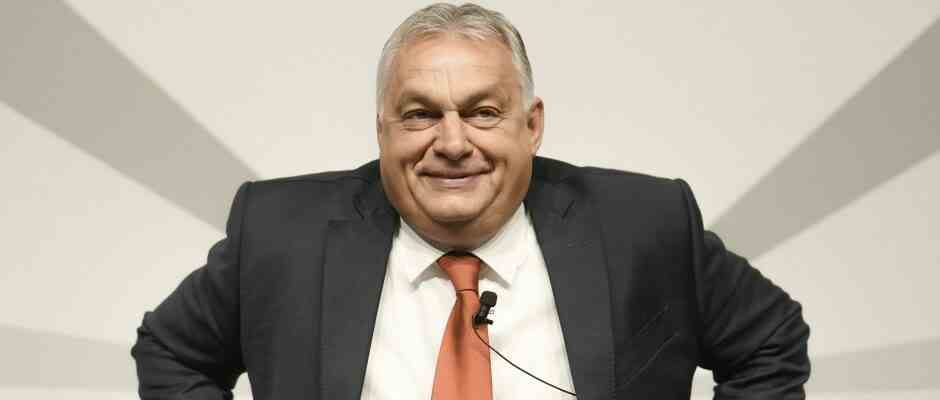Viktor Orbán has once again sent a letter to his compatriots. It contains seven questions that are now to be answered by post or online because, according to its own propaganda, the government attaches great importance to “listening to the people”https://www.sueddeutsche.de/politik/.”National Consultations”, non-binding mass surveys , are a popular means of Fidesz to mobilize on their own behalf. They have also been held by the Hungarian Prime Minister to relax Covid measures or to distribute migrants in Europe – and have always achieved the desired result.
This time it’s about the sanctions against Russia jointly decided by the EU states, which Hungary – apart from details – had always agreed to. What Orbán fails to mention in his letter.
Rather, it sounds as if Hungary is the victim of a mad Brussels bureaucracy which, in its attempt to punish Russia for its war of aggression against Ukraine, not only overshot the mark, but also made Hungary in particular the victim of its excessive measures. Parallel to the referendum, the country is covered with a poster campaign showing a bomb with the inscription “sanctions” on it; including: “Brussels sanctions are destroying us!” As if it weren’t Russian missiles that destroyed Ukrainian cities. Consequently, Orbán likes to refer to the EU sanctions in his speeches as a “nuclear bomb” that needs to be averted.
Hungary can blackmail the EU with vetoes on Ukraine policy
If you believe the Prime Minister, the situation in the country is dramatic – because of Brussels. “The sanctions are harming the European and Hungarian economies. In the meantime, Russia has even been able to increase its revenues,” the letter to citizens reads. In his weekly speech on Kossuth Rádió, Orbán completely twisted the truth: “The sanctions were not introduced democratically, nobody was asked.”
What the Hungarian wants to achieve is obvious: In a few weeks, the EU Commission will first make a recommendation and then the European Council will decide whether the country has done enough to fight corruption – and whether the billions of euros that have been withheld because of the ongoing rule of law proceedings from Brussels that Orbán needs so badly. Budapest wants to implement 17 measures; Critics speak of “cosmetic corrections” and “sham reforms,” but the commission seems inclined to accommodate Orbán. One reason: he can blackmail the EU with vetoes on Ukraine policy.
Now the populist wants to get an official mandate from the people. The formulations in the “National Consultation” are correspondingly suggestive: “Rising food prices increase the risk of famine in developing countries. This can lead to larger migration waves than before and increase the pressure on Europe’s borders. Agree with the sanctions that are responsible for the increase responsible for food prices?”
Orbán openly attacks the EU again
Questions are also asked about gas and oil sanctions; Hungary had already negotiated far-reaching special conditions for the latter: “In the case of Hungary, the oil embargo would lead to serious supply problems and mean a gigantic burden for the economy. Do you agree with the Brussels oil sanctions?”
Shortly before the outbreak of war, the Prime Minister himself, and later Foreign Minister Péter Szijjártó, were in Moscow, both of whom negotiated gas supplies. In August, the go-ahead for the expansion of the Paks nuclear power plant by a Russian state-owned company was announced. All this at a time when other EU countries were trying to cut their ties with the Kremlin – or at least promised to.
Meanwhile, Orbán has returned to his open attacks on the EU, which he had temporarily scaled back during the negotiations on the rule of law mechanism. A study by the Budapest think tank “Political Capital” also shows the adoption of Russian narratives and conspiracy theories in pro-government media – accompanied by decidedly anti-Western and anti-American rhetoric.
In the end, that was too much even for Joe Biden’s government. The US Embassy in Budapest has now released a video that is designed like a quiz. It features aggressive, populist quotes accusing the US of making money off the Ukraine war, wanting to make Ukraine a US province, preventing a peace deal, driving a pagan, anti-humanist course, which is why they are going to war have to go against America.
“Who said it?” was asked in each case, with a choice between Vladimir Putin and high-ranking Fidesz politicians. Unsurprisingly, all of the quotes came from close confidants of Orbán. Which is why the short film, a hit on social media, ended with the dry statement that allies should stand together in the face of Russian aggression. And don’t attack each other.

